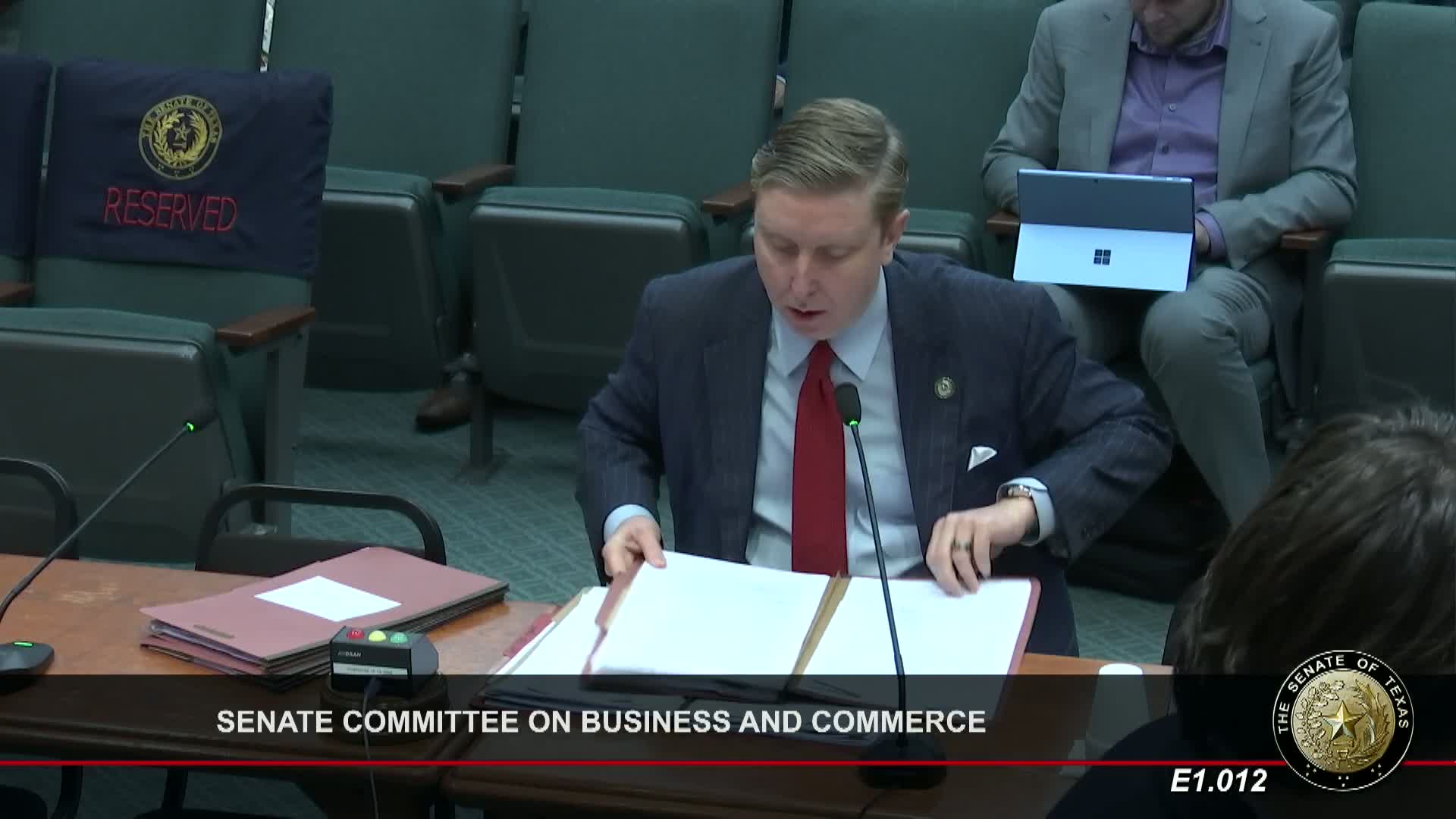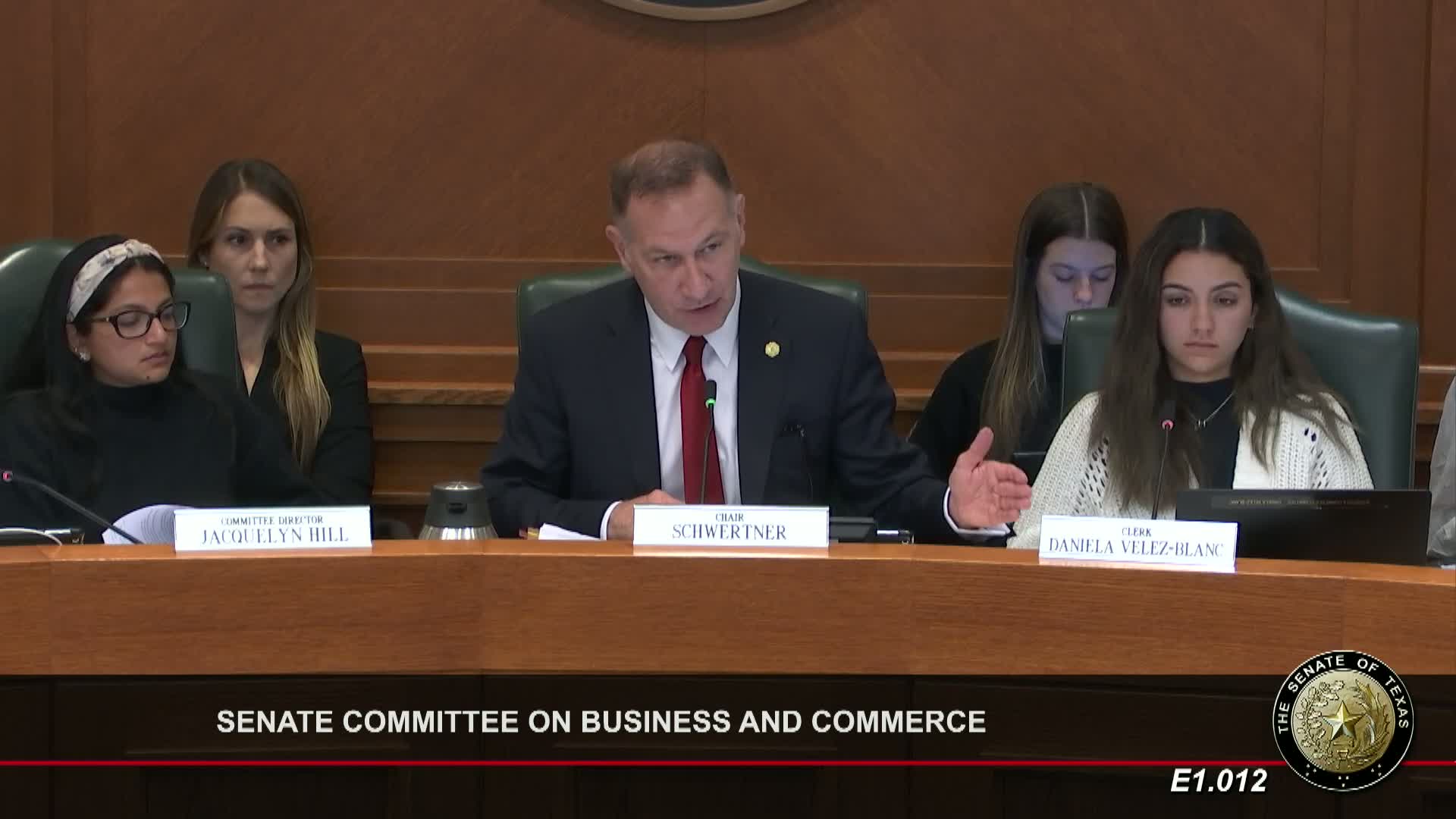Article not found
This article is no longer available. But don't worry—we've gathered other articles that discuss the same topic.

Committee substitute for HB 1500 would extend and reshape DIR, tighten cybersecurity requirements and add procurement supports

Senate committee hears debate on bill to create Texas Cyber Command at UTSA amid security, governance and procurement concerns

Panel considers bill to bar insurance contract language from blocking legally required cybersecurity breach notices

